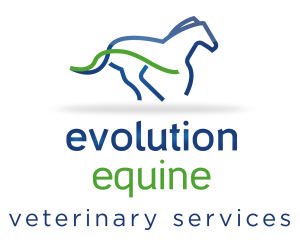Choke occurs when food or another foreign body blocks the oesophagus of the horse. This blockage may be complete or partial, but in either case, food and saliva which would normally pass through to the stomach may be returned through the mouth and nose. The most common cause is an obstruction with food material, either coarse dry hay or food which swells after consumption, such as dry sugar beet.
It is this food material at the mouth or nose which is the usual first sign of choke along with depression and repeated attempts to swallow. Some horses will panic with the discomfort of not being able to swallow. You might see coughing or wretching.
Many chokes will clear by themselves, but if they do not, an untreated choke will cause dehydration and severe depression. The tissues of the oesophagus can become weak and rupture, which is usually fatal. If you think your horse has choke, please call us, as the sooner the condition can be resolved, the fewer side effects will occur. One side effect which we must be careful of while clearing chokes is aspiration pneumonia. If the horse breathes in the water and feed being flushed out of the oesophagus into the lungs, we can introduce an infection to the lungs which will lead to pneumonia.
We will use a stomach tube passed via the nose to assess the level of the obstruction and to feel how solid the obstruction feels. In some cases, all that is required is a sedative and a drug which relieves the spasm in the oesophagus muscle. This allows the obstruction to pass. Where the obstruction is made of compacted food, it might need breaking down using fluid introduced through the stomach tube to flush out parts of the obstruction and break it down from the top. This can be a slow process, but patience is needed to avoid damaging the oesophagus.
Once cleared the horse will need a convalescent diet of very wet feeds and grass for several days while the inflammation calms down.
Preventing choke
- feeding – soak dry foodstuffs to allow them to attain their full swollen volume prior to feeding
- provide regular dental care, as failure to chew food properly is a common cause of choke. Phone the practice to book Heidi to come and check your horse’s teeth
- always allow access to fresh water
